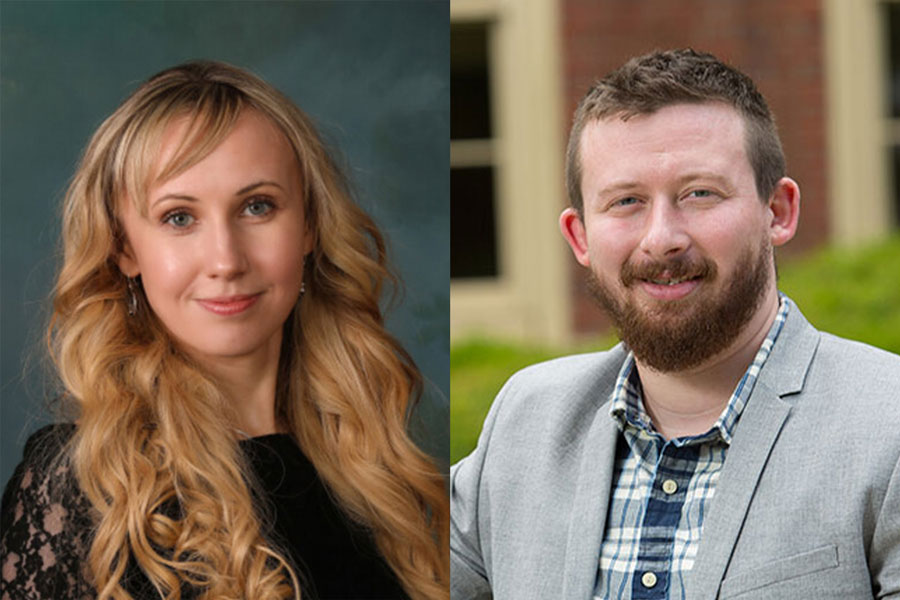
A pair of researchers from Florida State University’s College of Criminology & Criminal Justice were invited to lend their expertise in hate crimes to a workshop convened by the White House.
Associate Professors Brendan Lantz and Sylwia Piatkowska travelled to Washington D.C. as part of the May 29-30 symposium which was convened by the White House Office of Science and Technology, along with the National Security Council and the Domestic Policy Council.
“The theme of the entire conference was an acknowledgement that the way we are measuring hate crimes right now is not working and we need to make it better,” said Lantz. “Almost half of all hate crimes are not reported to police.”
Piatkowska served as principal investigator in a study in which she and Lantz explored the factors that lead to hate crimes being under reported and discussed that work. Specifically, the study analyzed hate crime victimization and reporting from the 2005-2015 National Crime Victimization Survey provided by the Federal Statistical Research.
"Victims don't report hate crimes and there is a lack of training among law enforcement agencies and a lack of resources to do so," she said. "We found that the presence of police bias units is linked to the victims reporting such crimes. So, we are working to translate those research findings to help law enforcement increase accuracy."
Piatkowska said the audience was comprised of representatives from a host of law enforcement and policy making agencies including the National Institutes of Health, the National Institute of Justice, and the National Science Foundation.

Lantz spoke to the audience about hate crime reporting practices, which rely on individual law enforcement to report the crimes to the Federal Bureau of Investigation, which then compiles the data.
“The Hate Crimes Statistics Act mandates that the FBI reports the statistics but the challenge is that it doesn’t mandate individual agencies to report hate crimes,” he said. “Some agencies have reporting practices develop where they don’t collect hate crimes but they report to the FBI that they’ve had none.”
Lantz and Piatkowska both said correcting the discrepancy between those agencies that strive for accurate hate crimes tracking and those that do not is a crucial step in tackling the issue.
“What I emphasized is there are some state laws that reduce that behavior and there are states providing training for officers,” he said. “We know that the states that have those systems in place have fewer agencies that engage in zero reporting and more agencies that report hate crimes.”
Piatkowska said the White House invitation was an honor — and a motivator.
“At the end of the day, what matters is that your work improves people’s lives; that should be the goal,” she said. “If my work can help victims just a little bit, that’s the whole purpose of my research and my career.”
Lantz echoed his colleague.
“The invitation to go there and talk about this work and answer questions about it in a place where policy changes can happen —to be involved with that— is really exciting,” he said. “When I started working in this area 13 years ago, people thought it was a niche topic. But in the last 10 years, we have seen policymakers acknowledge this as an important social issue.”
For more information, visit the Hate Crime Research & Policy Institute.
